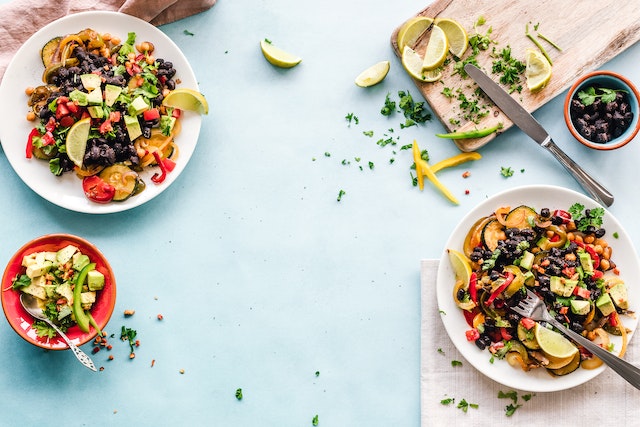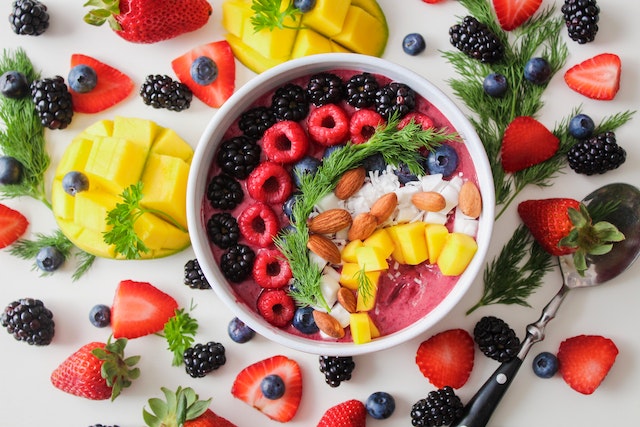Eco-friendly Diet with plant-based foods provides abundant nutrition and flavor without packing extra calories, so you can simultaneously eat healthier while losing weight! In addition, they are low in saturated fat, cholesterol-free, and often contain fewer toxins than their animal-based counterparts.
Eating more plant-based foods can help keep you energized and full throughout the day. Plus, it’s a great way to help to make the environment sustainable.

Here is an overview of eating more plant-based foods while trying to lose weight:
Eating plant-based foods reduce your carbon footprint
Eating plant-based foods doesn’t just help you lose weight; it also helps reduce your carbon footprint. It involves making mindful choices when selecting what foods to eat, where they come from, how they are produced and how they are transported. You can lose weight while helping the environment at the same time by making a few simple changes to your diet.
Adding more vegetables, fruits, legumes, and whole grains to your diet means using fewer resources to produce your food. Additionally, plant-based foods often require less energy to prepare, reducing energy use and contributing to the fight against global warming. Thus, it assists in protecting the environment, conserving natural resources and promoting social justice.
Eating sustainably also means supporting responsible agriculture farmers by choosing organic, local and seasonal produce; reducing food waste; consuming fewer animal products; and avoiding single-use packaging.
Plant-based foods also offer other health benefits, such as reducing your risk of heart disease, diabetes, and certain types of cancer.
The Nutritional Profile of Plant-Based Diets
A plant-based diet emphasizes whole, unprocessed plant foods such as fruits, vegetables, legumes, nuts, and seeds. As per research, plant-based diets are associated with lower carbon footprints than diets rich in animal products and improved cardiovascular health and weight loss.
Regarding the nutritional profile of a plant-based diet, several key nutrients contribute to weight loss. These include the following:
Fiber
Plant foods are an excellent source of dietary fiber that promotes healthy digestion, which is important for weight loss.
Protein
Plant foods are also a great source of protein, which helps in losing weight. It also helps keep you feeling fuller and longer while providing essential amino acids for muscle growth.
Healthy Fats
These provide essential fatty acids for hormone production and brain health.
Vitamins and Minerals
Plant-based foods are also a great source of essential vitamins and minerals, which play a vital role in weight loss because they help to regulate metabolism and blood sugar levels.

The Transition to Eating More Plant-Based Foods
It’s no secret that weight loss and fat loss are two different goals, but they can both be achieved by eating a plant-based diet. Plant-based foods can help you lose weight because they lower calories and fat while providing beneficial vitamins, minerals, and antioxidants. It can reduce or eliminate unhealthy fats and replace them with healthier options like fruits, vegetables, beans, nuts, and grains.
To transition to a weight loss-focused, plant-based diet, replace processed and animal-based foods, such as red meat, with plant-based protein sources like legumes, nuts, and tofu. You can also add healthy fats to your diet from avocados, nuts, and seeds.
To reduce your calorie intake, replace unhealthy snacks like candy or chips with fruits or vegetables. You can also drink plenty of water and limit sugary beverages like soda.
Additionally, try to incorporate smaller portions of the foods you already enjoy. Eating more plant-based food does not mean depriving yourself – it’s about making smarter choices that help you achieve a balanced diet.
Plant-Based Meal Ideas
Eco-friendly weight loss ideas don’t have to be complicated. Opting for more plant-based foods is a great way to reduce your environmental impact. Here are a few plant-based meal-planning ideas to get you started:
Start Your Day with a Green Smoothie
Green smoothies are packed with fiber, vitamins, and minerals and can be made with your favorite fruits and veggies.

Make Meals Centered Around Grains
Whole-grain carbs like oats, quinoa, and brown rice are nutritious and environmentally friendly. Eat them as a side, or make a grain bowl with your favorite veggies, legumes, herbs, and spices.
Replace Meat with Plant-Based Protein Sources
Swap animal proteins for plant proteins like tempeh, tofu, and black beans. You can also try plant-based meats like seitan, jackfruit, and veggie burgers made with whole grain buns or lettuce wraps.
Try New Plant-Based Recipes
Experimenting with different plant-based recipes can help you find new flavors and combinations you love. Look for recipes with ingredients like lentils, sweet potatoes, and other nutrient-dense whole foods.
Making the Switch to Plant-Based Foods Work
When you’re starting to focus on eating mostly plant-based foods, it can be overwhelming to figure out how to make it work. Here are some tips that will help make the transition easier:
Planning Ahead
- Make a grocery list and stick to it while shopping.
- Plan out your meals for the week and stock up on key ingredients you need – this will help you save money and time when cooking!
Shopping Tips
- Choose whole plant-based foods rather than processed, packaged items, as they provide more nutrition and fewer additives and preservatives.
- Look for high protein sources like beans, lentils, nuts, and seeds to incorporate into meals throughout the week.
Eating Out
- Ask your server or chef to make a special vegetarian dish or request that they leave out the meat from certain dishes.
- Look for restaurants with plant-based options already on the menu – many have started catering to the growing demand for vegetarian and vegan meals.
Conclusion
Eating more plant-based food is not only an easy way to go green, but it’s also an effective way to lose weight. Plants are low in calories and fiber, making them the perfect choice for anyone trying to slim down. Also, when you reduce your meat consumption, you’re moving towards a more sustainable future. So make the green switch today – your body will thank you!
